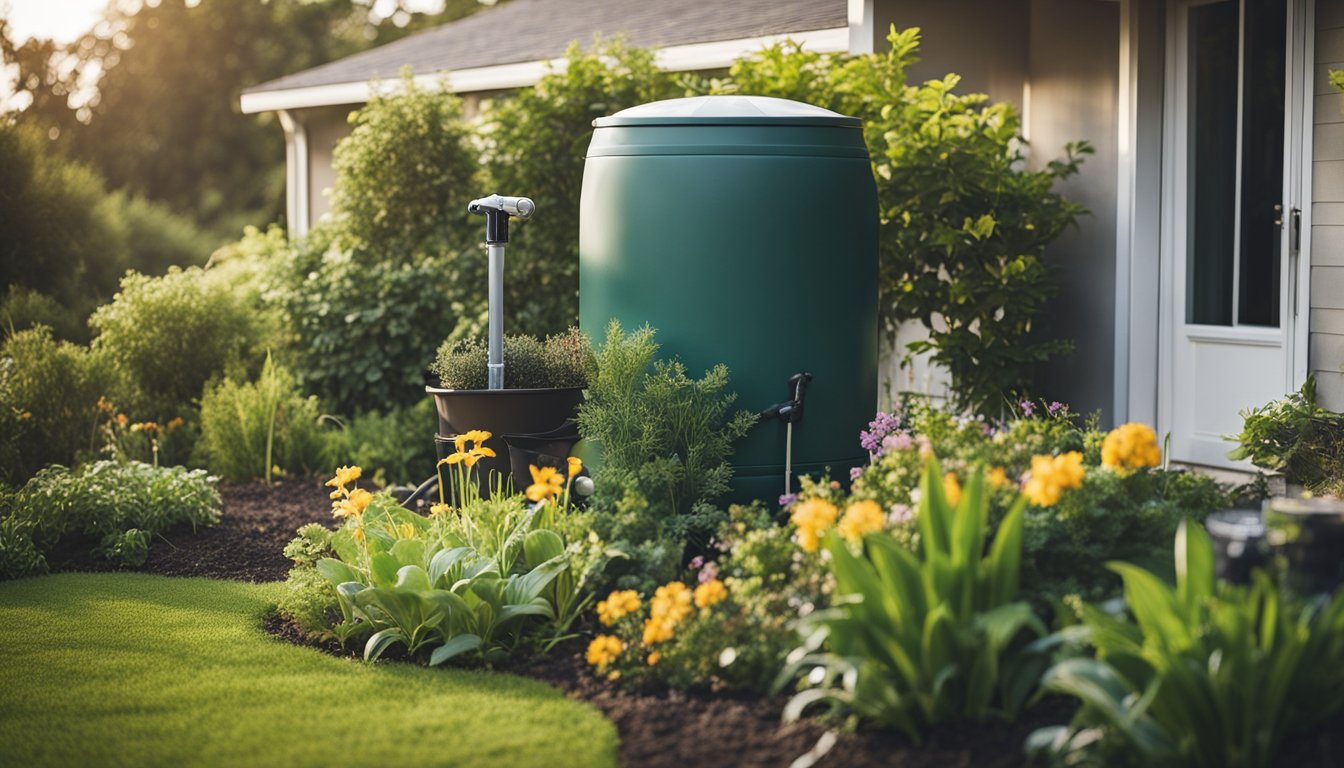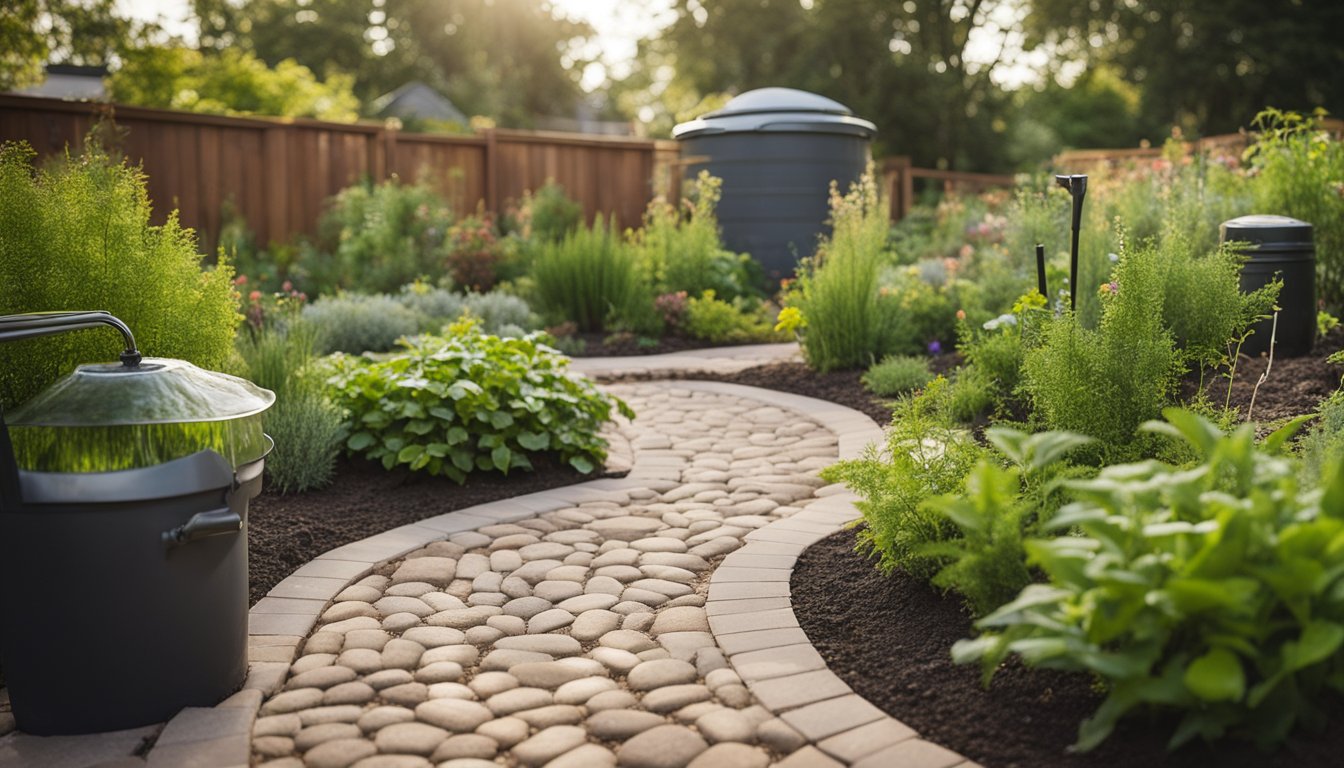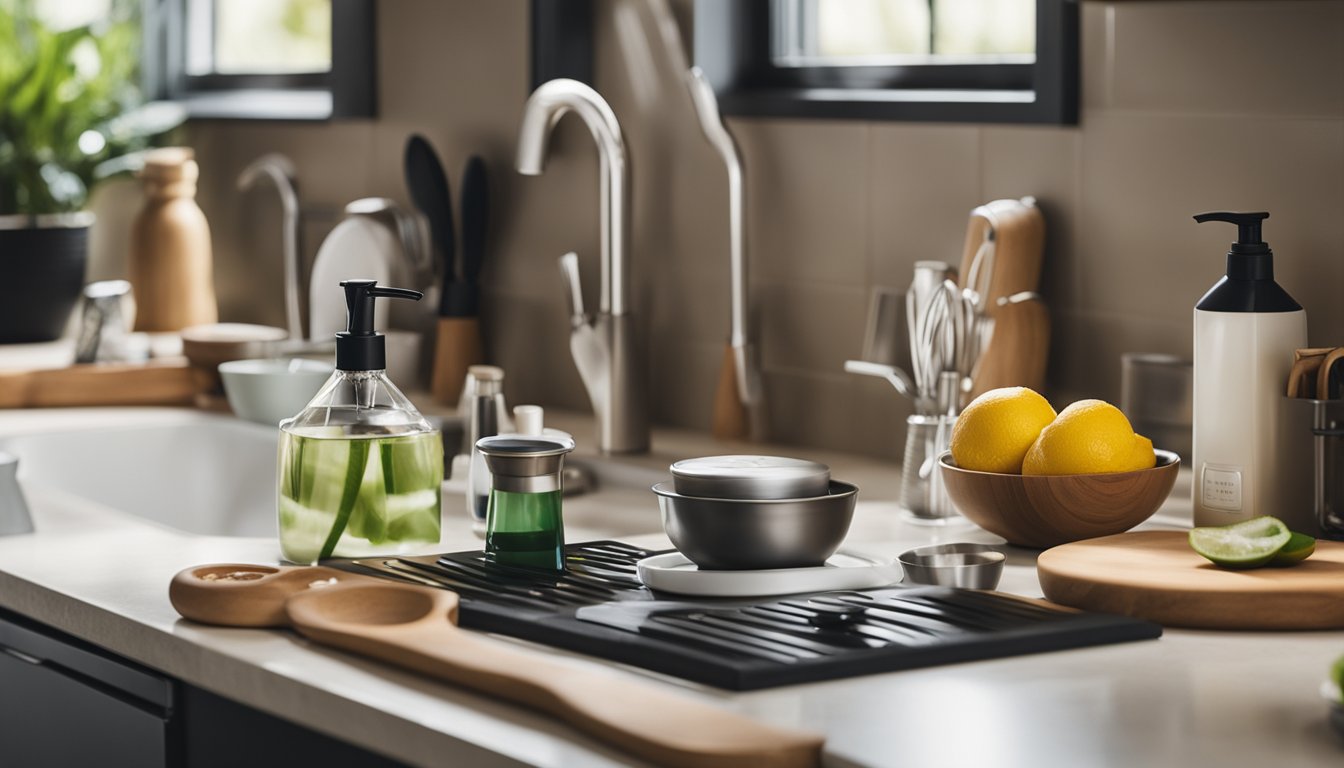Late updated: 11 Dec 2024 14:12
Written by: Sarah Hollister
Eco-Friendly Tips For Reducing Water Usage At Home: Simple Practices for Conservation
Reducing our water usage at home isn't just an environmentally responsible choice; it's essential for sustainable living in a world facing increasing water scarcity. By adopting eco-friendly habits, we can significantly lower our water footprint, helping to combat climate change and preserve precious natural resources. Whether it's retrofitting our homes with water-saving technologies or making smarter choices in landscaping, these measures make a meaningful impact.

Actively seeking ways to minimise water wastage is critical. Implementing simple actions like repairing leaks, investing in low-flow fixtures, and opting for water-efficient appliances contributes to a greener future. Let's explore various strategies that not only benefit our wallets but also promote environmental sustainability by reducing our overall water consumption.
Another effective approach lies in external water management. Creating an eco-friendly garden with drought-resistant plants and collecting rainwater are practical steps towards conserving resources. These efforts not only enhance our surroundings but also support environmental resilience.
Key Takeaways
- Eco-friendly water practices reduce our water footprint and support sustainability.
- Simple home adjustments can significantly lower water usage.
- Landscaping choices contribute to efficient water management.
Practical Water Conservation Strategies at Home
It's crucial to adopt strategic methods to save water at home, not only to reduce our utility bills but also to make a positive impact on the environment. Implementing changes in how we manage daily chores, upgrading our home fixtures and appliances, and cultivating new habits can effectively conserve water.
Efficient Water Use in Daily Chores
Laundry and Dishwasher Practices: Let's wash full loads every time. Running the washing machine or dishwasher at full capacity reduces water and energy usage. Efficient Dishwashers: Choosing energy-efficient models, such as those with an Energy Star label, can further cut down on water consumption.
Manual Dishwashing: When washing dishes by hand, we should fill the sink or a basin instead of running the tap continuously. This simple change can conserve a significant amount of water.
Fixtures and Appliances Upgrade
Water-Efficient Fixtures: Installing fixtures like water-saving showerheads, dual-flush toilets, and faucet aerators can drastically reduce water usage. Low-flow showerheads provide the same functionality while using less water.
Upgrading Appliances: Investing in water-efficient appliances makes a big difference. Dual flush toilets use just the needed amount of water for each flush type. These upgrades could lead to substantial long-term savings on our utility bills.
Mindful Water Habits
Shorter Showers: Taking shorter showers is one of the simplest ways to reduce water use. We should aim for showers under five minutes to conserve water effectively.
Turn Off the Tap: Whether brushing our teeth or shaving, turning off the tap when not actively using water can save many litres. This habit, coupled with regular leak detection and repair, helps prevent water wastage.
Fix Leaks Promptly: Leaks may seem minor, but they lead to considerable water loss. Regular checks and prompt repairs ensure no water is wasted unnoticed.
By incorporating these practical strategies, we make our homes more eco-friendly and efficient.
Eco-Friendly Landscaping and External Water Management

In the realm of sustainable landscaping, focusing on eco-friendly practices can significantly conserve water. Using native plants, collecting rainwater, and employing advanced irrigation methods are vital aspects to reduce our water usage and address drought conditions.
Gardening with Indigenous Flora
Integrating native plants into our gardens is an effective way to enhance sustainability. These plants are naturally adapted to local climates and soil types, requiring less water and fewer resources than non-native species. By choosing drought-resistant grasses and xeriscaping techniques, we create a landscape that thrives with minimal water input.
Native plants also contribute to biodiversity, supporting local wildlife and pollinators. Creating a garden with indigenous flora can also involve installing rain gardens, which utilise rainwater efficiently and help manage stormwater runoff. This approach not only saves water but also reduces soil erosion and improves groundwater recharge.
Rainwater Collection and Use
Rainwater harvesting is an efficient method to conserve water for landscaping needs. By installing rain barrels or more advanced systems, we can collect rainwater to reuse for watering gardens and lawns. This practice not only lowers reliance on municipal water supplies but also mitigates the impact of water shortages during droughts.
Using collected rainwater is beneficial for plants, as it is free of the chemicals often found in tap water. Incorporating rainwater collection systems allows us to practice water-efficient landscaping while maintaining healthy gardens. Additionally, setting up a drip irrigation system connected to a rain barrel can further optimise our water usage.
Advanced Irrigation Techniques
Modern irrigation technologies enable us to water our landscapes efficiently. Smart irrigation systems, equipped with sensors and timers, adjust watering schedules based on weather conditions and soil moisture levels. These systems prevent over-watering and minimise water wastage, crucial for regions facing drought or water-related issues.
Drip irrigation is another advanced technique, delivering water directly to plant roots to minimise evaporation. This method is particularly effective in xeriscaped landscapes, where precise watering is key. By employing such water management strategies, we contribute to environmental conservation and ensure a sustainable future for our water resources.
Frequently Asked Questions

In our journey towards reducing water usage at home, the focus is on practical methods, daily habits, impactful techniques, and sustainable practices. Small changes can lead to significant savings, and we're here to address common questions on these topics.
What are some effective methods for conserving water in residential areas?
Effective water conservation in homes includes installing low-flow fixtures like showerheads and taps. Rainwater harvesting systems can also be a valuable addition, as they allow us to collect and reuse rainwater for watering gardens or flushing toilets, thereby reducing reliance on mains water.
Could you suggest daily habits that contribute to water conservation?
Simple habits such as turning off the tap while brushing teeth and taking shorter showers significantly reduce water usage. Washing full loads of laundry and dishes also conserves water, while small changes, like fixing leaky taps promptly, can prevent waste.
What are the most impactful water-saving techniques for household use?
Using appliances efficiently is key. Dishwashers and washing machines should be run on full loads, ideally on energy-saving modes. Additionally, planting drought-resistant gardens minimises the need for frequent watering, making a noticeable difference in consumption.
In what ways can homeowners implement sustainable water practices?
Sustainable practices include greywater systems, which reuse water from baths and sinks for irrigation. Installing dual-flush toilets offers another way to save water. Education on sustainable water management is crucial, encouraging the whole household to adopt responsible habits.
How do small changes in water usage lead to significant savings?
Small changes accumulate over time. Reducing shower times by just a minute can save litres of water. Consistent efforts like these contribute to lower bills and less strain on local water supplies, demonstrating the power of mindful water usage.
What steps can individuals take to minimise water waste in their homes?
Installing water-efficient appliances and regularly checking for leaks help minimise waste. Using mulch in gardens retains soil moisture, reducing the frequency of watering. Educating family members about water-saving habits ensures that everyone plays a part in conservation efforts.
